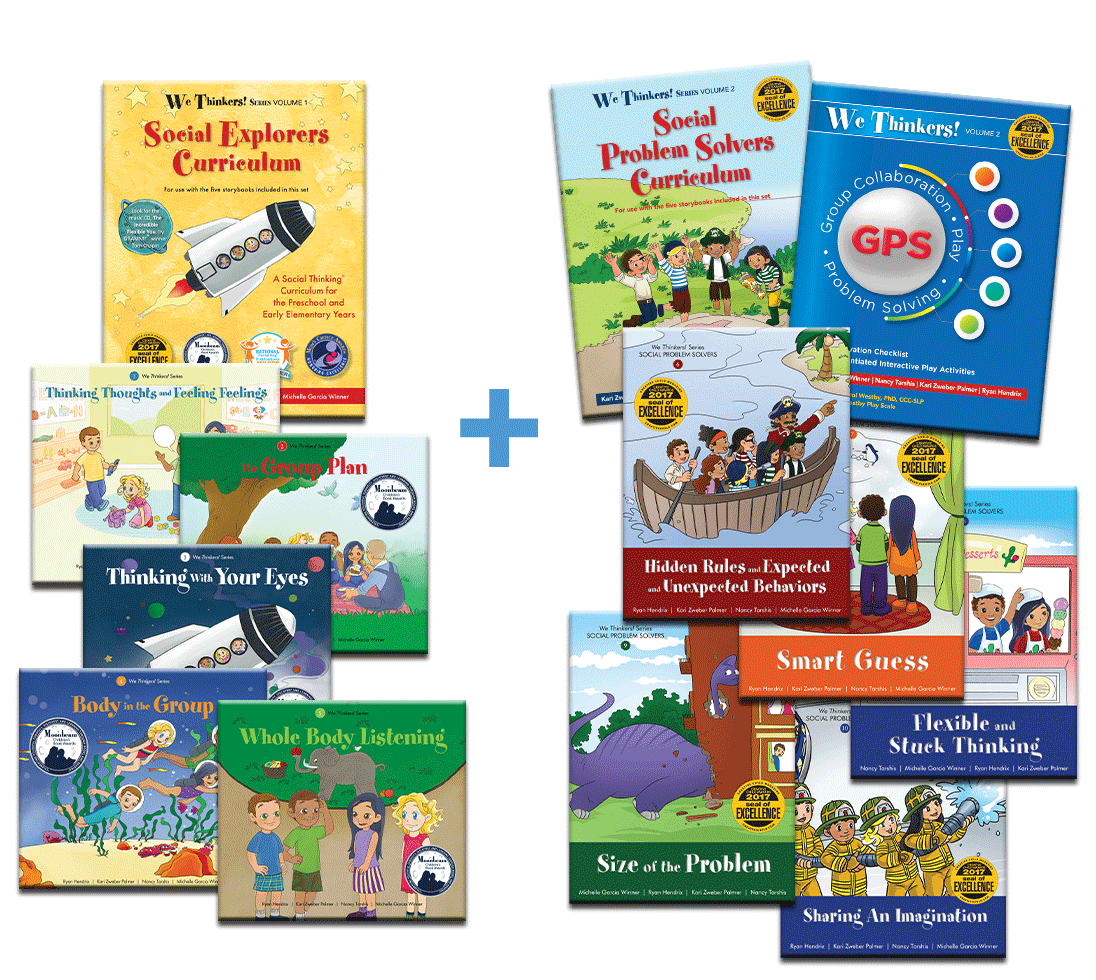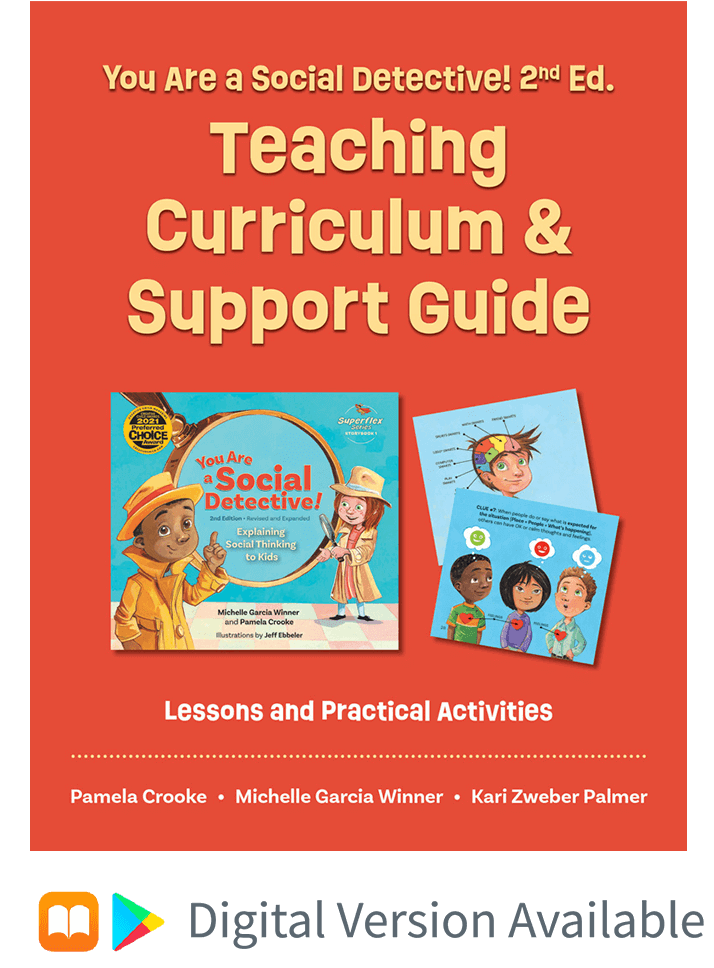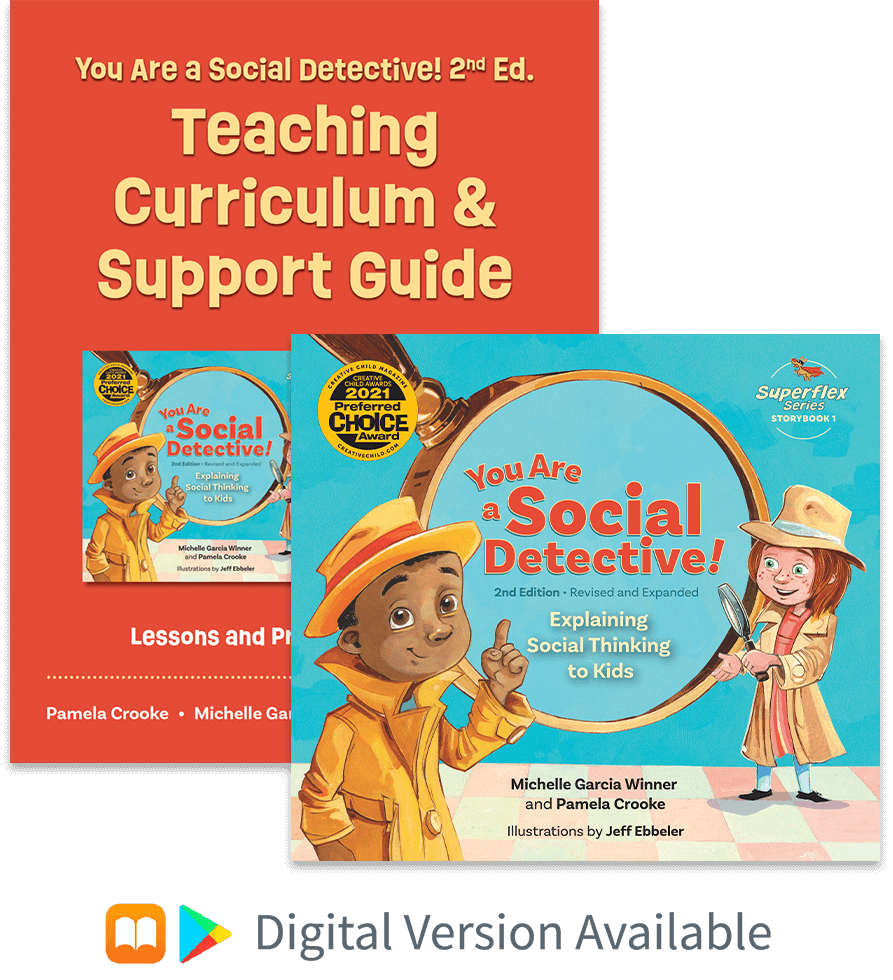
This 3.5-hour course explores:
- How to get set up for social connection and academic success throughout the school year
- Visual tools, vocabulary & strategies for learning about the social world across the day
- Classroom and schoolwide implementation through 10 concepts in 10 months
For any special accommodations or assistance with resources email us.
Implementing Social Thinking® Schoolwide: Bringing the Concepts into Classrooms & Beyond
Replay access through July 31, 2024
Detailed Description
And Who Should Attend
Now, as ever, social emotional learning is an integral part of education. The last few years have certainly highlighted its importance. The Social Thinking Methodology provides a pathway between recognizing the importance of social emotional learning and teaching it. While the Social Thinking Methodology was originally developed for individuals with social emotional learning differences, mainstream classroom teachers noted how useful many of the practical concepts and strategies were for teaching all students. For many years we’ve been working with elementary schools around the world to bring these concepts to life in classrooms and schoolwide.
The same social thinking abilities required to relate effectively to others are also essential for success in academics. Central to this teaching is how students use their social mind not only to play on the playground, but also to work effectively as part of a group, stay on task, figure out the expected times to talk in class, and share space well with others. Social thinking is also critical for individualized socially based academic tasks, such as reading comprehension, explaining one’s ideas when writing paragraphs or essays, or doing a classroom or schoolwide presentation.
Our tools and materials support teaching social emotional learning and, more specifically, self- awareness, social awareness, self-regulation, executive functioning, and perspective taking. This symphony of competencies also fosters relationship development. We’ll share practical examples and stories of how elementary schools have implemented aspects of the Social Thinking Methodology to support these competencies. We’ll also provide ideas and inspiration to:
- set up classrooms and other social learning spaces using visual supports
- use specific lesson plans during the first weeks of school
- infuse the Social Thinking Vocabulary across a school day and over time
- learn strategies for teaching social observation, shifting between and within activities, and classroom expectations
One of the benefits of schoolwide implementation is the bridge that it builds between environments and people. When classroom teachers and specialists share the same language and strategies it creates a more cohesive learning environment. We’ll explore how interventionists working with small groups and individuals play a critical role in supporting those with social learning differences. We will discuss how to best group students for optimal social learning. We’ll also offer thoughts on navigating tricky group dynamics, as well share our favorite activities to kick off a new school year.
Preparation for a new school year also happens at home. What can parents and caregivers plan for and consider now to help ease the changes a new school year brings? Strategies for understanding and supporting students at home will be discussed.
Who Should Attend
The Social Thinking Methodology is used by a wide variety of professionals, including speech-language pathologists, special and general education teachers, social workers, counselors, clinical and school psychologists, occupational therapists, behavior specialists, and school administrators to name a few. It’s also used by family members and caregivers across settings.
Learning Objectives and Agenda
What You Will Learn
Participants will be able to:
- Identify at least two strategies for supporting students during daily transition times.
- Explain the importance of social observation to group learning and how to teach it using the smart guess formula.
- Describe two activities to help social learners identify their strengths and advocate for their needs.
Agenda
1 hour and 20 minutes
- The social mind across the school day
- What we can do before the school year begins
- Framing up what to expect and planning for the unknown
- Classroom and schoolwide implementation through 10 concepts in 10 months
- Lesson planning for the beginning of school
- Setting up social learning spaces with visual supports
1 hour and 40 minutes
- Building community and connection among students with people files, we-files and our many different smarts
- Oopsies and mistakes: Supporting resilience and a growth mindset for learning
- Lesson plans for the first weeks of school
- Teaching strategies for daily transition times
- Setting expectations
- Small group learning set up, troubleshooting, and FAQs
30 minute – Previously Recorded Q&A with Kari, Ryan, and Dr. Pam Crooke (moderator)
Continuing Education Credit
3.5 hours toward CE credit, if applicable
Click here to see if you can receive CE credit by Profession and by State
We are proud to provide access to continuing education credit for:
- Speech-Language Pathologists (livestream and recorded)
- Educators (livestream and recorded)
- ...and others!
Technical requirements to participate in online training
Streaming compatible browser
The best browser for streaming is Google Chrome. If you are unable to use Chrome, please make sure the version of your browser is the latest and greatest.
Download ChromeHigh-speed internet connection
Make sure you are accessing the online course on a device that is connected to high speed internet—that means your download speed is at least 25Mbps.
Run Internet Speed TestOpen firewall ports
If you are accessing the online course from your school or organization, ask your network administrator if there are any firewall ports that need to be opened.
Learn More















